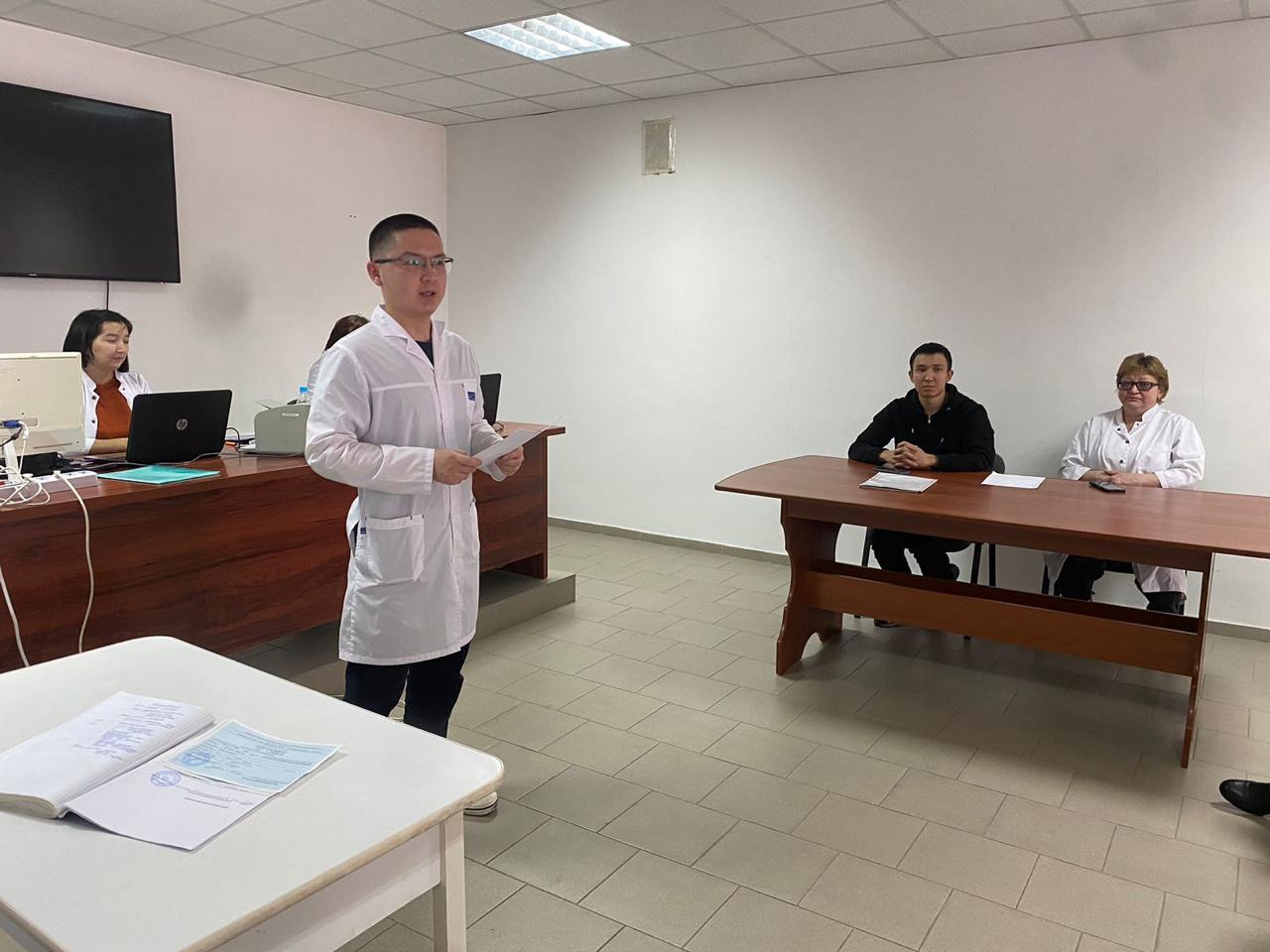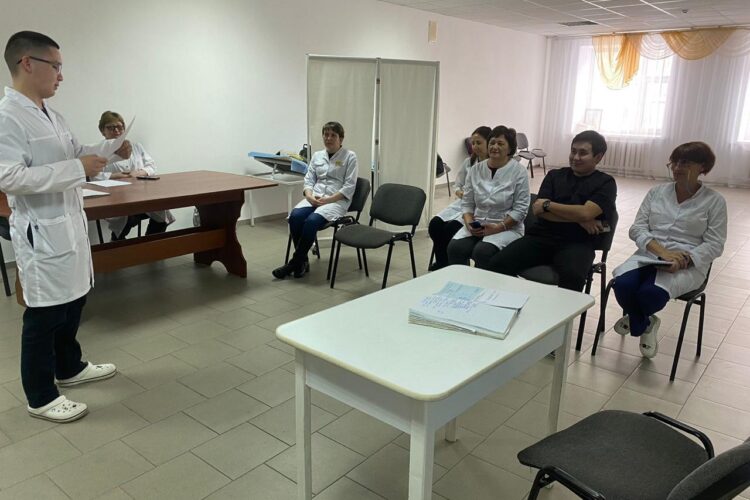As part of the school of preventive medicine at the MSE on PVC “Uspen DH” on March 4, 2025, a seminar on the topic “Tuberculosis and its prevention” was held among the medical staff under the guidance of the of head the department of GP, Professor A.A. Dyusupova academic mentor, PhD, Acting Associate Professor S.M. Adilgozhina. Tuberculosis is a chronic infectious disease caused by Mycobacterium tuberculosis and transmitted through airborne droplets. It primarily affects the lungs but can also involve bones, kidneys, meninges, and other organs. Risk factors include weakened immunity, poor social conditions, and chronic illnesses. Common symptoms are prolonged cough, fever, night sweats, and weight loss. Diagnosis includes tuberculin tests (Mantoux, Diaskintest), chest X-rays, and sputum microscopy for mycobacteria.
Prevention is based on BCG vaccination, which reduces the risk of severe forms in children. Early detection and treatment, regular fluorography screening for high-risk groups, isolation of infectious patients, and improvement of living and nutritional conditions play a crucial role. Chemoprophylaxis with isoniazid may be prescribed to high-risk individuals (close contacts, immunocompromised persons). Maintaining a healthy lifestyle, avoiding smoking and alcohol, and following personal hygiene measures help reduce the risk of infection.


